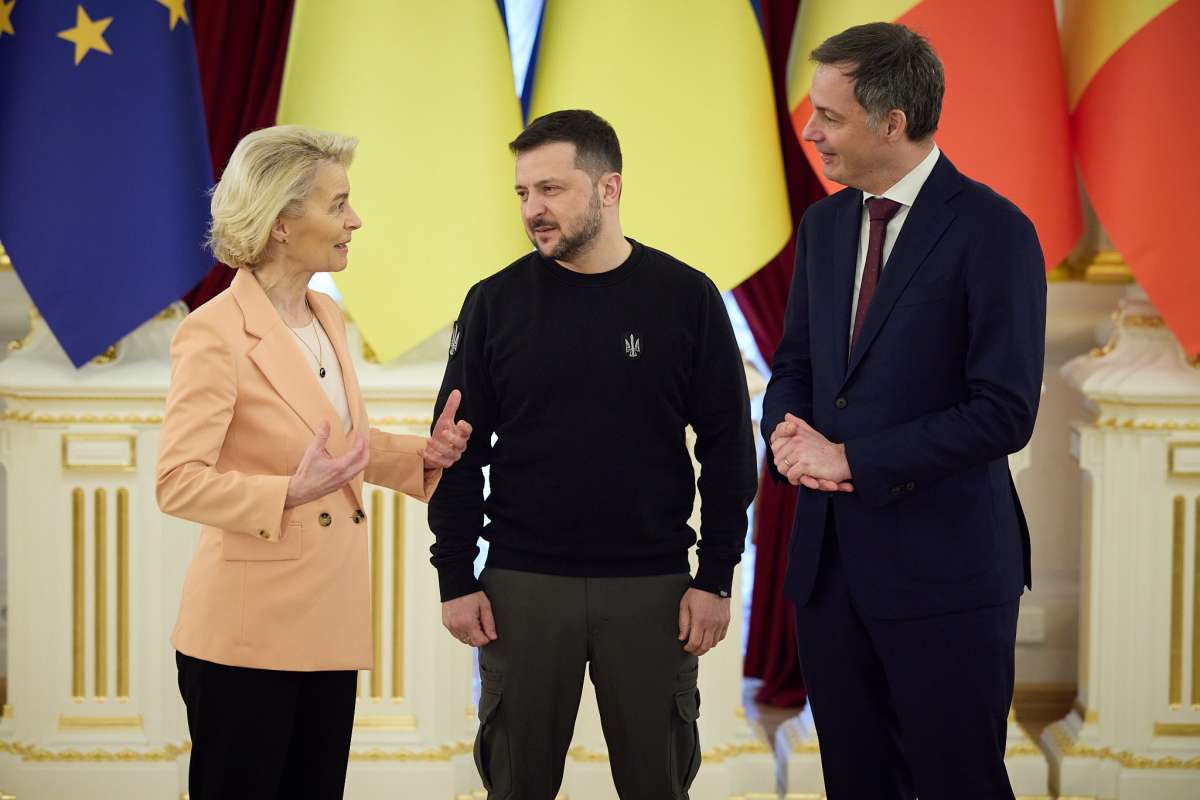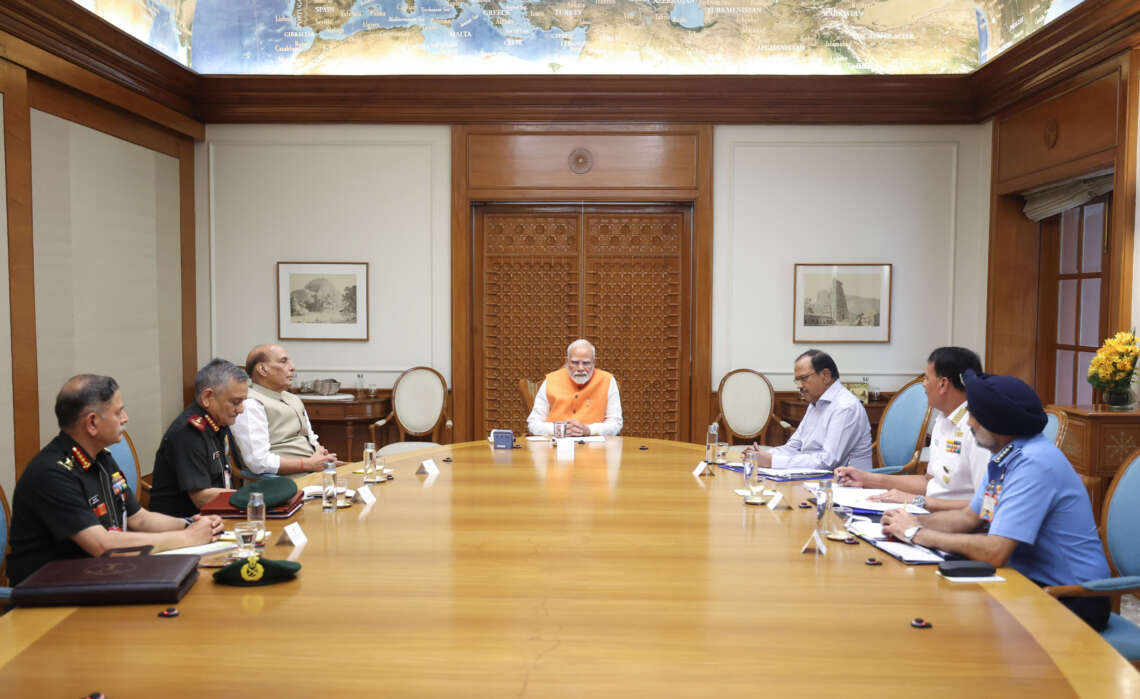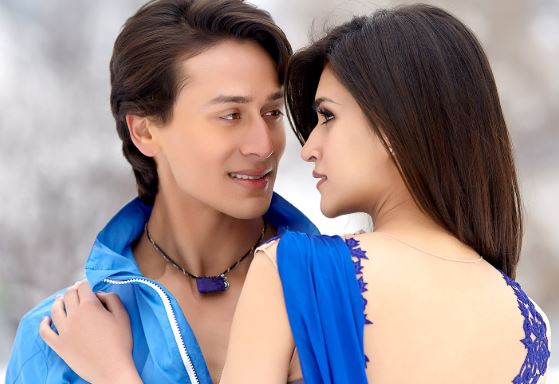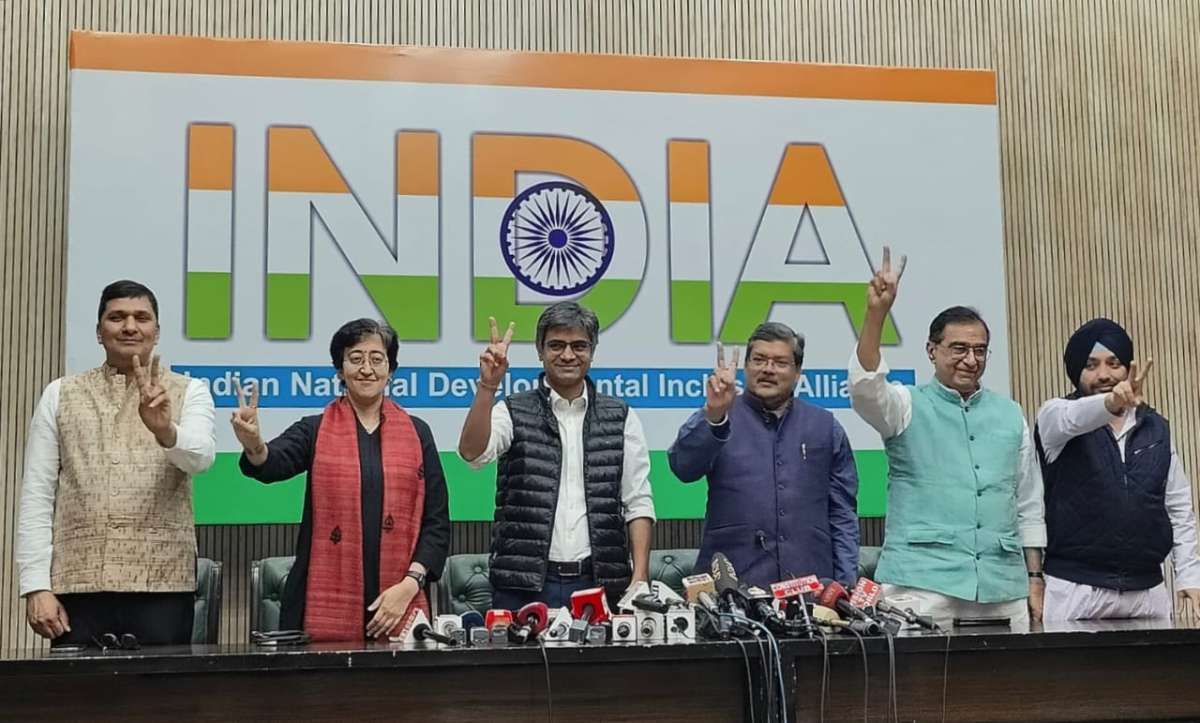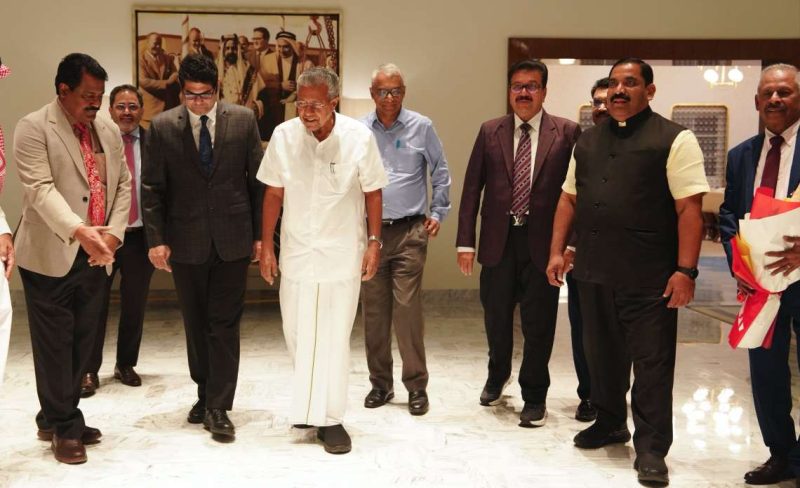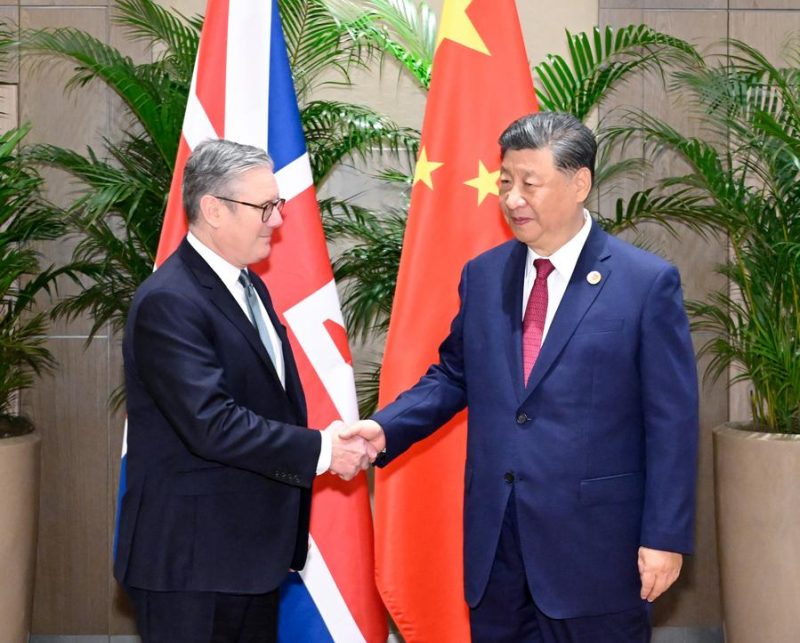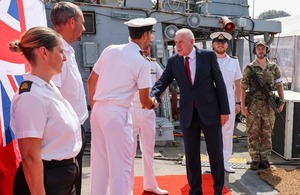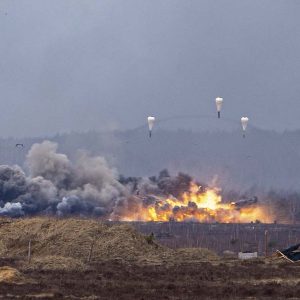Meloni and Trudeau are expected to sign security pacts with Ukrainian President Volodymyr Zelenskiy during their brief stay, in line with deals recently agreed with France and Germany that are worth billions of dollars…reports Asian Lite News
Four Western leaders arrived in Kyiv on Saturday to show solidarity with Ukraine on the second anniversary of Russia’s full-scale invasion, which has cost tens of thousands of lives and ravaged the country’s economy.
The prime ministers of Italy, Canada and Belgium – Giorgia Meloni, Justin Trudeau and Alexander De Croo – travelled with the president of the European Commission, Ursula von der Leyen, on an overnight train from neighbouring Poland.
Their presence was designed to underline the West’s commitment to helping Ukraine even as it suffers growing shortages of military supplies, impacting its performance on the battlefield where Moscow is grinding out territorial gains.
Von der Leyen wrote on the social media platform X that she was in Kyiv “to celebrate the extraordinary resistance of the Ukrainian people”. She added: “More than ever, we stand firmly by Ukraine. Financially, economically, militarily, morally. Until the country is finally free.”
Meloni and Trudeau are expected to sign security pacts with Ukrainian President Volodymyr Zelenskiy during their brief stay, in line with deals recently agreed with France and Germany that are worth billions of dollars.
However, $61 billion in aid promised by U.S. President Joe Biden is being blocked by Republicans in Congress, casting a long shadow over Kyiv’s hopes of pushing back the much larger, better supplied Russian military.
Biden is due to take part in a video conference call of fellow leaders of the Group of Seven (G7) major democracies on Saturday, which will be chaired by Meloni, with Zelenskiy invited to join the discussion.
Italy holds the rotating presidency of the G7 and organised the call, saying it was vital to challenge perceptions that the West had grown weary of the conflict and that Russia was winning.
When Russian tanks and infantry streamed across the border before dawn on Feb. 24, 2022, Ukraine’s 40 million people defied expectations – and the Kremlin’s best-laid plans – by holding them back and preventing a widely predicted defeat.
But as the war enters its third year, setbacks on the eastern front have left the Ukraine army looking vulnerable. Seeking to maintain Western focus on Ukraine, even as the war between Israel and Hamas dominates headlines, Zelenskiy has warned that Russia, led by President Vladimir Putin, may not stop at Ukraine’s borders if it emerges victorious.
Putin dismisses such claims as nonsense. He casts the war as a wider struggle with the United States, which the Kremlin elite says aims to cleave Russia apart. The West sees the invasion as an unjustified act of aggression that must be repelled.
There will be events across Ukraine on Saturday to mark the anniversary, including a commemoration service for those who died in Bucha, north of Kyiv – scene of some of the worst alleged war crimes of the conflict.
Ukraine’s prosecutor general said on Friday it had launched investigations into more than 122,000 suspected war crimes cases in the last two years. Russia denies carrying them out.
The initial shock of the invasion gradually morphed into familiarity and then fatigue, as the world watched initial Russian gains and a stunning Ukrainian counteroffensive in late 2022 slow into grinding, attritional trench warfare.
In scenes reminiscent of the battlefields of World War One, soldiers under heavy artillery fire are dying in their thousands, sometimes for a few kilometres of land. Both sides have developed huge and increasingly sophisticated fleets of air, sea and land drones for surveillance and attack, an unprecedented use of unmanned vehicles that could point the way to future conflicts.
Russia, with a much bigger population to replenish the army’s ranks and a larger military budget, might favour a drawn-out war, although the costs have been huge for Moscow as it seeks to navigate sanctions and a growing reliance on China.
Ukraine’s position is more precarious. Villages, towns and cities have been razed, troops are exhausted, ammunition is running low and Russian missiles and drones rain down almost daily.
Russia this month registered its biggest victory in nine months, capturing the eastern town of Avdiivka and ending months of deadly urban combat. yet Zelenskiy remained defiant ahead of the anniversary.
“I am convinced that victory awaits us,” he told diplomats in Kyiv this week in an emotional address. “In particular, thanks to unity and your support.” Tens of thousands of troops have been killed on both sides and tens of thousands more wounded, while thousands of Ukrainian civilians have perished.
The scale of devastation in Ukraine is staggering. A recent World Bank study said that rebuilding Ukraine’s economy could cost nearly $500 billion. Two million housing units have been damaged or destroyed, and nearly 6 million people have fled abroad.
In addition to raising money and arms to continue the war, Zelenskiy is pushing legislation through parliament allowing Ukraine to mobilise up to half a million more troops – a target some economists say could paralyse the economy.
Russia’s finances have proved resilient so far to unprecedented sanctions. While natural gas exports have slumped, shipments of oil have held up, thanks largely to Indian and Chinese buying.
Russia’s GDP expanded 3.6% in 2023, although some Russia-based economists warned that this was driven by a leap in defence spending and that stagnation or recession loom.
That will not jeopardise Putin’s victory in elections in March, which he is set to win by a landslide amid broad support for his performance and for the war, described by the Kremlin as a “special military operation”.
In the last two years, authorities have cracked down hard on any form of dissent over the conflict. On Feb. 16, Putin’s most formidable domestic opponent, Alexei Navalny, died in an Arctic penal colony where he was serving a 30-year sentence.
On Friday, Putin addressed troops fighting in Ukraine as Russia marked Defender of the Fatherland Day, hailing them as heroes battling for “truth and justice.”
He laid a wreath at the tomb of the unknown soldier at the foot of the Kremlin wall to honour those who have died in battle.
ALSO READ-US warns of environmental disaster from cargo ship hit by Houthis


